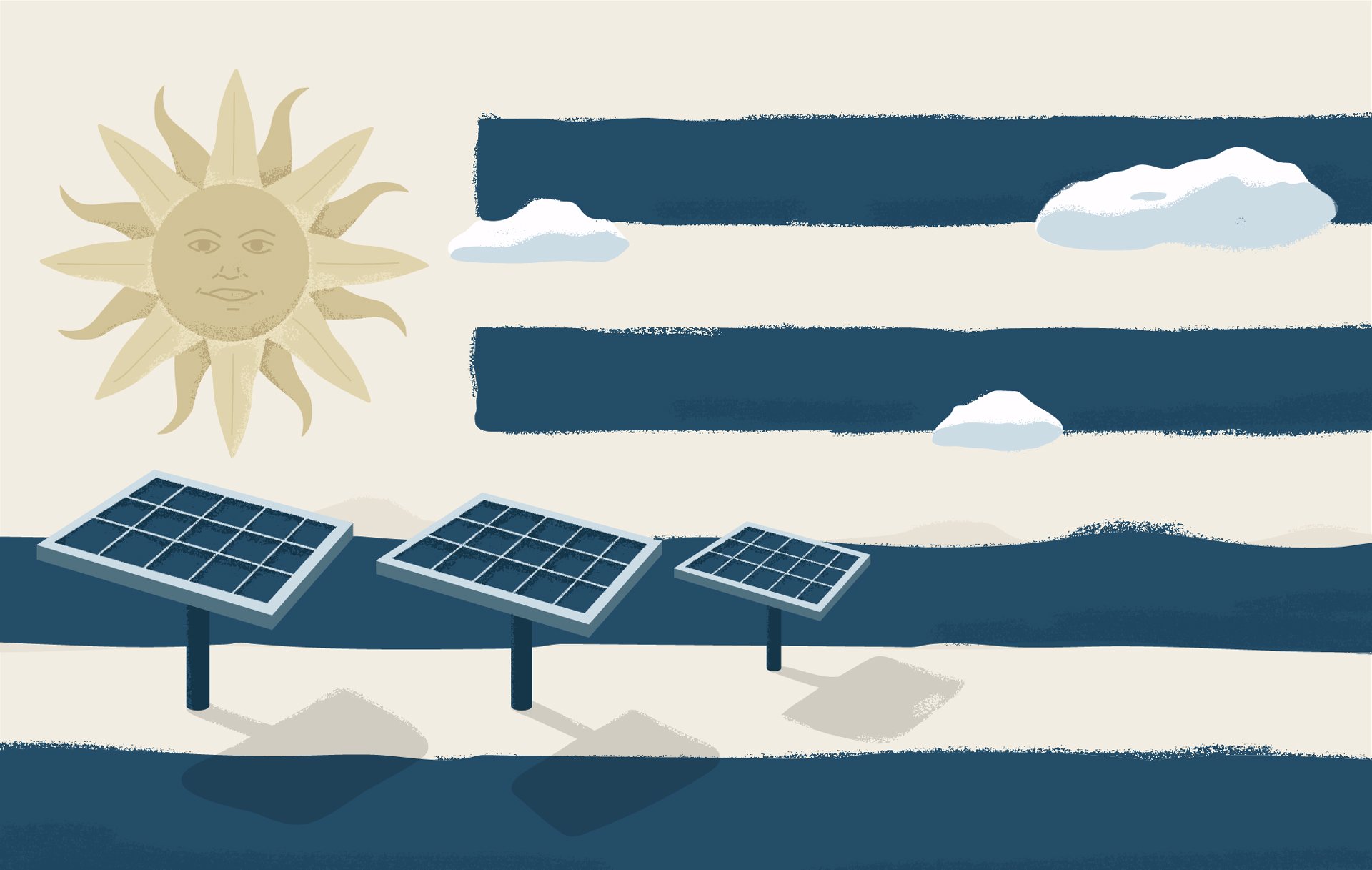“with wind the single-biggest contributor… Power production costs have declined “by almost half” … And the clean energy sector has created 50,000 new jobs… Ask me what was the impact on the electricity sector in Uruguay after this tragic war in Europe — zero.”



This aspect is a big aspect of intermittent renewables energy that is often dismissed: you need piloted energy as a backup, the amount of piloted energy depend on how oversized is the intermittent energy installation.
For renewable piloted energy there is two options that I know of: hydro and biomass. Uruguay is using both.
It’s something to keep in mind if we want to reach 100% renewables without nuclear, we need to increase the biomass electricity production.
On another hand we are already using a lot of biomass to produce ethanol and biodiesel. A lot of land is also use for animal feed, so I’m a society with less ICE cars and less meat eated we might have enough land to grow biomass for electricity generation.
Exactly, but I’m wondering how Uruguay is planning to go from a “might” to a “definitely” enough biomass production
I have no idea but I’m really interested to find out.
Actually one comment of many here set me on the right track! I’ll reply again when I find out!
Gotta get to the airport now tho, laters!
Well then it’s a good thing that’s United States produces 20 to 25% of its electricity through nuclear power generation. It would be a good idea to maintain that.
Biomass as a source of energy has a lot of the same problems as fossil fuels, no? Why is nuclear not on the table while biomass is?
Nuclear does not have the same function than biomass.
A biomass power station is (relatively) cheap to build but the fuel is expensive. So it make sense to have it as a backup and only use it when necessary.
On the other hand nuclear is expensive to build but the fuel is cheap. So building a nuclear power station as a backup does not make sense, it needs to run all the time.
This is the basic ideas, but in practice nuclear is actually beneficial to renewables. The electricity network operator did several scenarios for the French electrical production in 2050. In their scenarios, having around 13% of nuclear in the mix divided by almost two the amount of solar, wind turbines and batteries needed.
But nuclear is scalable while running, allowing you to ramp up and down as needed to cover for the intermittent nature of renewables without relying on fossil fuels or similar. Isn’t that why adding nuclear into the mix is such an effective strategy?